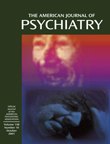Nearly four decades ago, my first Freud was the Freud of
Introductory Lectures (1). Given in the winter semesters of 1915–1916 and 1916–1917, these were the last series of his lectures at the University of Vienna, which had started 20 years earlier following his appointment as Privatdozent in 1885. According to Freud
(1), the audience included doctors and laymen of both sexes. The resulting volume was his most widely circulated book. I still remember the pleasure of Freud’s calm, seductive, and convincing rhetoric leading me toward the understanding of parapraxes, dreams, and on to the neuroses.
The Swedish Psychoanalytical Society was stimulated by the 50th anniversary of Freud’s death to present a public symposium and, shortly after, a lecture series intended for the general public. On Freud’s Couch is the published product of this series. Six Swedish psychoanalysts revisit seven of Freud’s famous cases: two from “Studies on Hysteria,” Dora, Little Hans, the Rat Man, Schreber, and the Wolf Man. Like Freud’s original presentations, these are seductively simple (without being simplistic) and jargon free.
The authors are acutely aware of Freud’s own elisions and distortions, as well as of the complex layering of discussion and elaboration by succeeding generations of analysts, antianalysts, and historians. They are discussing not case material but reports of case material or, in Schreber’s case, thoughts about a published self-description. A “case example” is the clinician’s, not the patient’s. Although aware of Freud’s inability to “hear” certain themes, e.g., the importance of mothers and mothering, they give him full credit for being willing to listen to hysterics (e.g., “A neurosis never says foolish things,” p. 106), for his discounting of degeneration theory, for recognizing the significance of our emotional life, and for understanding that what goes on between patient and doctor is important. Perhaps most valuably, they see his work in its historical context and refuse to judge him on the basis of current knowledge. As one of the authors points out, it would be wrong to fault Billroth for not using laser surgery. The authors note the complexity of Freud’s views, e.g., his “complementary series” of etiologic events, and his willingness to rethink and to rehypothesize.
The first two cases, from “Studies on Hysteria,” are a charming introduction to the rest of the book. The last, on the Wolf Man, is the most complex, partly reflecting his long life and his continuing, if ambivalent, relationship with analysts and with analysis.
On Freud’s Couch is a fitting companion to the
Introductory Lectures. Together they make an excellent introduction to the history and current status of psychoanalytic thinking. As Jonathan Lear
(2) recently wrote, psychoanalysis “is a technique that allows dark meanings and irrational motivations to rise to the surface of conscious awareness” so that they can be influenced, modified, and thereby made less disruptive. This book can make our theories more available to both lay and professional audiences.

